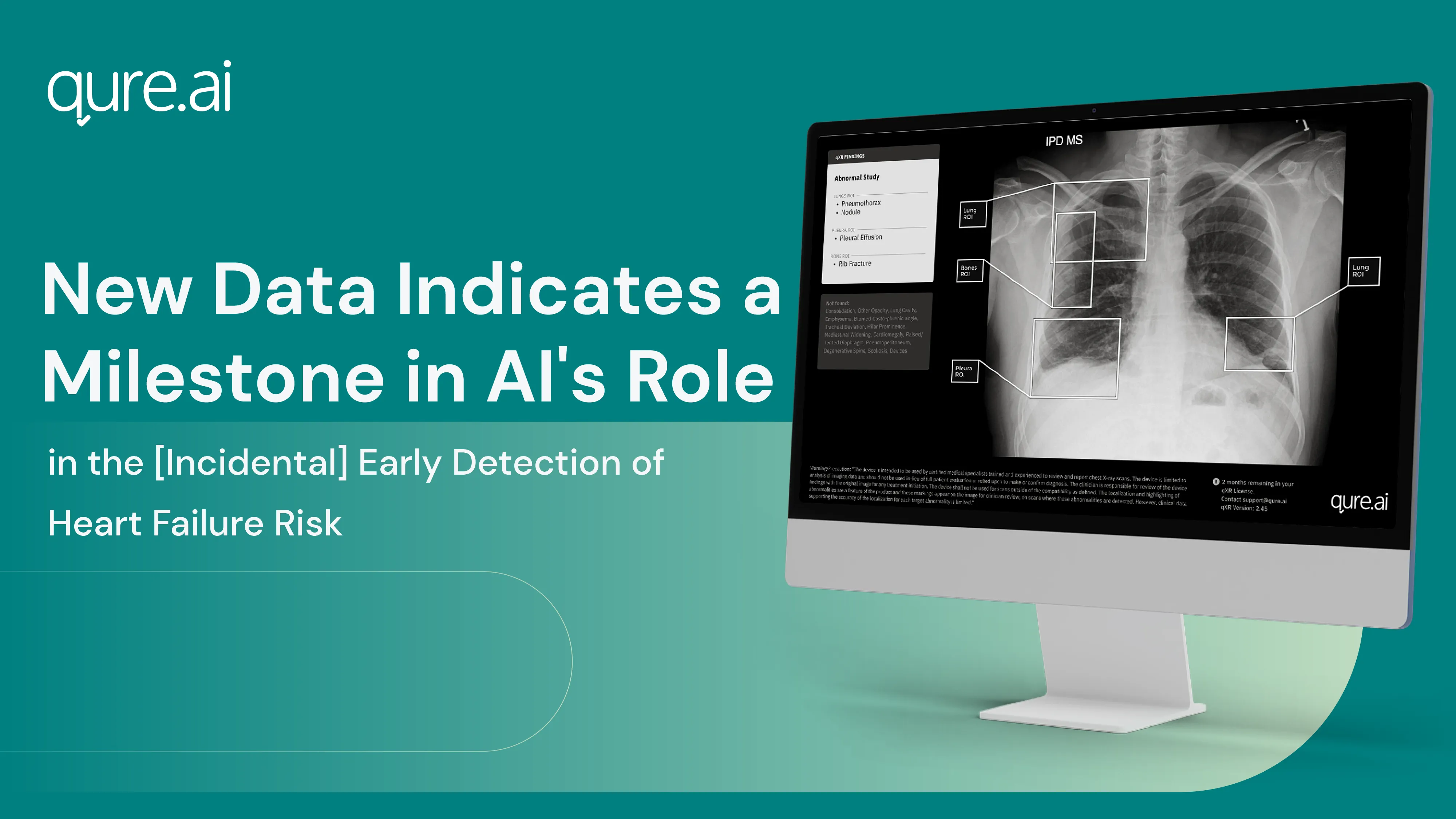A recent study published in Clinical Cardiology entitled "The Diagnostic Value of Chest X-ray Scanning with the Help of Artificial Intelligence in Heart Failure (ART-IN-HF)" has broken new ground by deploying an AI-enabled chest X-ray solution (qXR from Qure.ai) for incidental detection of heart failure risk. Given rising incidence rates and troubling trends in heart failure, including HFpEF (Heart Failure with preserved Ejection Fraction), this is a transformative intervention in the incidental detection pathway.

Back
Heart failure is a complex, life-threatening cardiac condition that is often misdiagnosed due to its nonspecific symptoms. ART-IN-HF project is a promising study focusing on qXR’s analysis of chest X-rays to detect increased cardiothoracic ratio (CTR) and pleural effusion—markers commonly linked with potential heart failure. Among 10,000+ outpatient X-rays, qXR flagged 183 patients (1.8%). Confirmatory tests revealed that 77% of those flagged indicated heart failure, affirming the tool's promising potential.
Comprising nearly half of all new heart failure cases, HFpEF is notoriously difficult to detect using traditional methods, which often require expensive and invasive tests. ART-IN-HF's analysis showed that 54.9% of flagged cases were HFpEF, signifying a significant advance in detecting this elusive form of heart failure.
Commenting on the study results, Prashant Warier, Founder and CEO, Qure.ai opined; "Heart failure is a fatal condition with nonspecific symptoms that are difficult to detect, especially in the early stages. Utilizing AI assistance for X-ray interpretation can be beneficial for the early detection of heart failure risk, making it a valuable addition to the detection and diagnosis pathway. The ART-IN-HF study represents a significant step forward in harnessing the true potential of AI to reduce late diagnosis and enable early intervention for life-threatening conditions such as heart failure. Qure is looking forward to more industry and academia collaborations to draw out the impact AI can have in diagnostic healthcare.”
Artificial Intelligence demonstrates great potential to detect the risk of heart failure early, even in patients with minimal symptoms. With a mean sensitivity of 90% and specificity of 80%, qXR's performance in the ART-IN-HF study explores the potential impact of an AI-augmented pathway in the early detection of heart failure risk. Early heart failure detection is critical for patient care because it can reduce mortality rates, decrease healthcare costs, and diminish the overall cost incurred by the healthcare system.